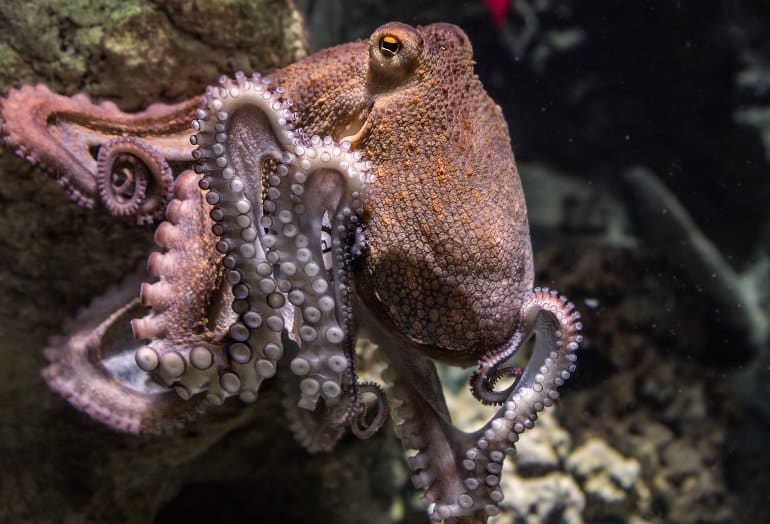Octopuses May Link Evolution of Complex Life to Genetic ‘Dark Matter’
Click here to view original web page at Octopuses May Link Evolution of Complex Life to Genetic ‘Dark Matter’ Summary: Findings support the theory that microRNAs are essential for the development and evolution of intelligent life. Source: Dartmouth College Octopuses have captured the attention of scientists and the public with their remarkable intelligence, including the … Continue reading “Octopuses May Link Evolution of Complex Life to Genetic ‘Dark Matter’”








